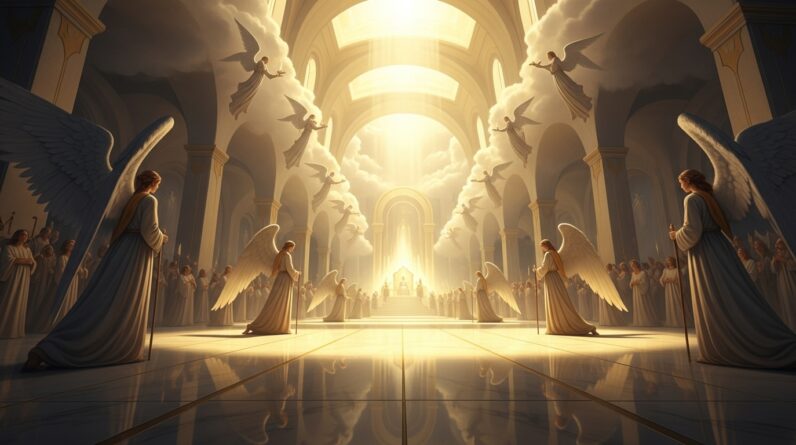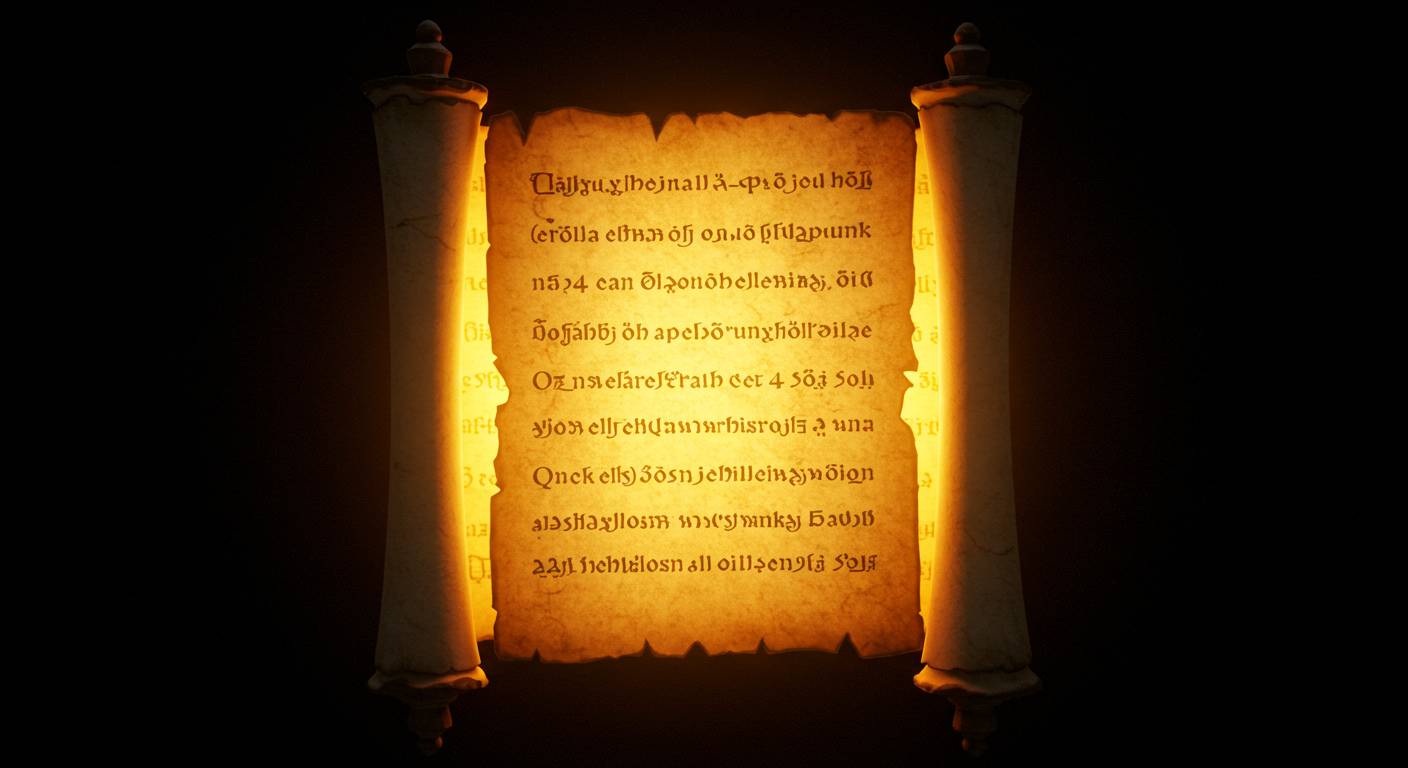Explore the profound insights of Revelation 20:12 in ‘The Book Of Deeds.’ Delve into the eternal significance of our actions and their impact on spiritual reflection.
The Book Of Deeds: Our Actions Recorded In Eternity — Revelation 20:12

Introduction: Setting the Scene
In the tapestry of human history narrated by biblical scripture, few scenes capture the imagination and provoke introspection as compellingly as the vision encompassed in Revelation 20:12. In this verse, part of the highly symbolic and prophetic book of Revelation, we encounter a profound moment where actions are weighed, and the eternal consequences of earthly deeds are revealed. This divine courtroom where lives are scrutinized offers a chance for reflection and understanding. To begin exploring this vision, let’s delve into its essential elements as expressed in the scripture. You can read the full verse here.
Why it Matters
This vision is significant not merely within the confines of the Revelation narrative but extends its reach to the spiritual lives of believers today. Revelation 20:12 represents a stark reminder that every action, big or small, is noted and accounts for our eternal standing. This concept challenges us to consider our daily choices, compelling us to tread consciously with the weight of eternity in mind. For contemporary readers, this verse beckons an examination of how we live, pushing an alignment with spiritual and ethical principles.
Exploring the Vision in Depth
Summary of Key Symbols
Revelation 20:12 is rich with symbolic elements, each contributing to its broader message of judgment and accountability. Central to this vision is the “great white throne” symbolizing purity and divine authority. The “books” opened are seen as records of deeds, bearing witness to every action taken by individuals throughout their lives. The “dead” stand before this throne, embodying the universality of judgment, transcending the barriers of mortality and time.
Contextual Background
To fully appreciate this revelation, it’s essential to understand its context within the broader biblical narrative. Revelation, written during a time of persecution for Christians, served as a source of hope and perseverance. The imagery and language are deeply intertwined with Jewish apocalyptic literature, which often uses vivid symbols to convey messages of faith and destiny. The references to books of life and deeds find parallels in other scriptures, such as Daniel 7:10, emphasizing a consistent theme throughout biblical teachings that underscores accountability and divine justice.
Interpretation
Interpreting this vision, we glimpse a cosmic scale where justice is rightfully meted out. Each symbol contributes to the overarching message: the inevitability of divine judgment and the importance of living a life aligned with God’s will. The great white throne represents not just judgment but the mercy characterizing divine rulership. This scene reassures believers of the ultimate regard for righteousness while warning of the perils of waywardness, inviting a deeper spiritual introspection about one’s life path.
Relevance for Today’s Readers
Spiritual Insight
For modern readers, the Book of Deeds offers spiritual insights into living intentionally in a world filled with distractions. It urges the cultivation of faith, integrity, and love, focusing on making impactful decisions that reflect inner beliefs rather than fleeting temptations. In essence, it is a beautiful reminder of how interconnected life is, with each moment offering an opportunity to sow seeds of righteous actions.
Application in Daily Life
Applying the lessons of this vision means engaging in constant self-reflection and seeking alignment between one’s beliefs and actions. It can inspire you to maintain a daily practice of mindfulness in decision-making, striving to do good even in the smallest deeds. The sacred portrait of deeds tells us that while we may not witness immediate outcomes, the positive ripples will ultimately align with the divine tapestry of life, steering an individual toward spiritual fulfillment.
Supporting Verses and Cross-References
Related Verses
The themes discussed in Revelation 20:12 echo throughout the Bible, fostering a holistic understanding of its message. For example, 2 Corinthians 5:10 emphasizes, “For we must all appear before the judgment seat of Christ.” Another resonant verse is Ecclesiastes 12:14, stating, “For God will bring every deed into judgment, including every hidden thing, whether it is good or evil.” These verses support the call for accountability and reinforce the journey of spiritual vigilance.
Conclusion: Reflection on the Vision’s Message
Summarize Key Takeaways
As we conclude our exploration of Revelation 20:12, the key takeaways from a spiritual anchor: God’s ultimate justice prevails, and our actions bear eternal significance. Believers are called to scrutinize their lives, aligning daily practices with the inherent values espoused by scripture. The vision emphasizes hope and the promise of redemption, insisting on a life of intentionality and faithfulness.
Encourage Further Reflection
I invite you to meditate on this profound vision and allow its message to influence your spiritual and daily routines. Use it as a springboard towards deeper commitment and understanding of the divine plan revealed through scripture. Explore other Bible passages to further enrich and bolster your faith journey.
Call to Faith
The vision’s powerful reminder of recorded deeds and judgment offers a poignant call to faith. In times of trial or complacency, remember the assurance of God’s ultimate victory and the invitation to partake in a life rooted in love, justice, and righteousness. May you stand firm in this knowledge, pursuing growth and enlightenment.
Consider closing with a resonant verse that echoes the theme of this exploration, Philippians 1:6: “Being confident of this, that he who began a good work in you will carry it on to completion until the day of Christ Jesus.” For an extended read, please refer here.







